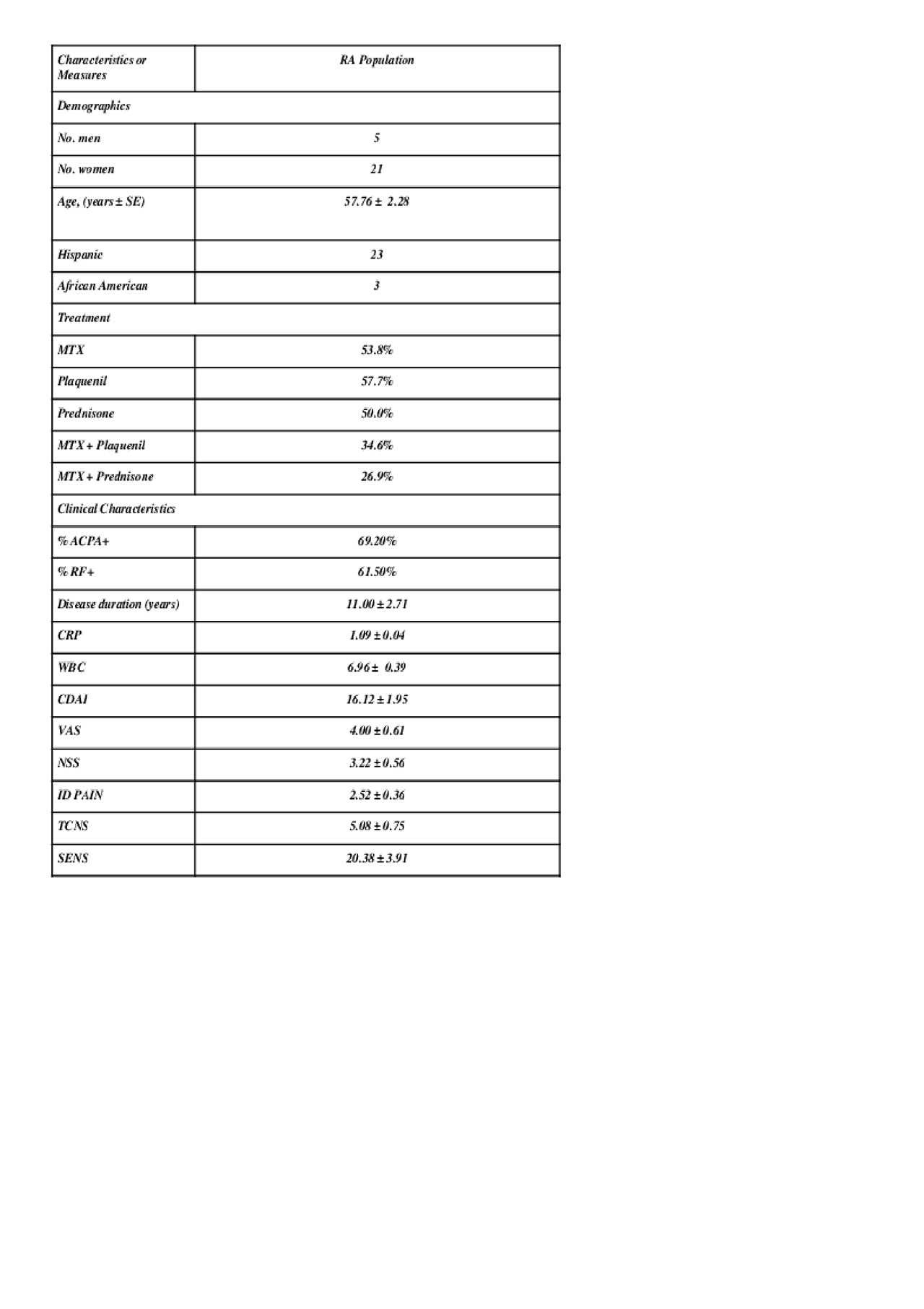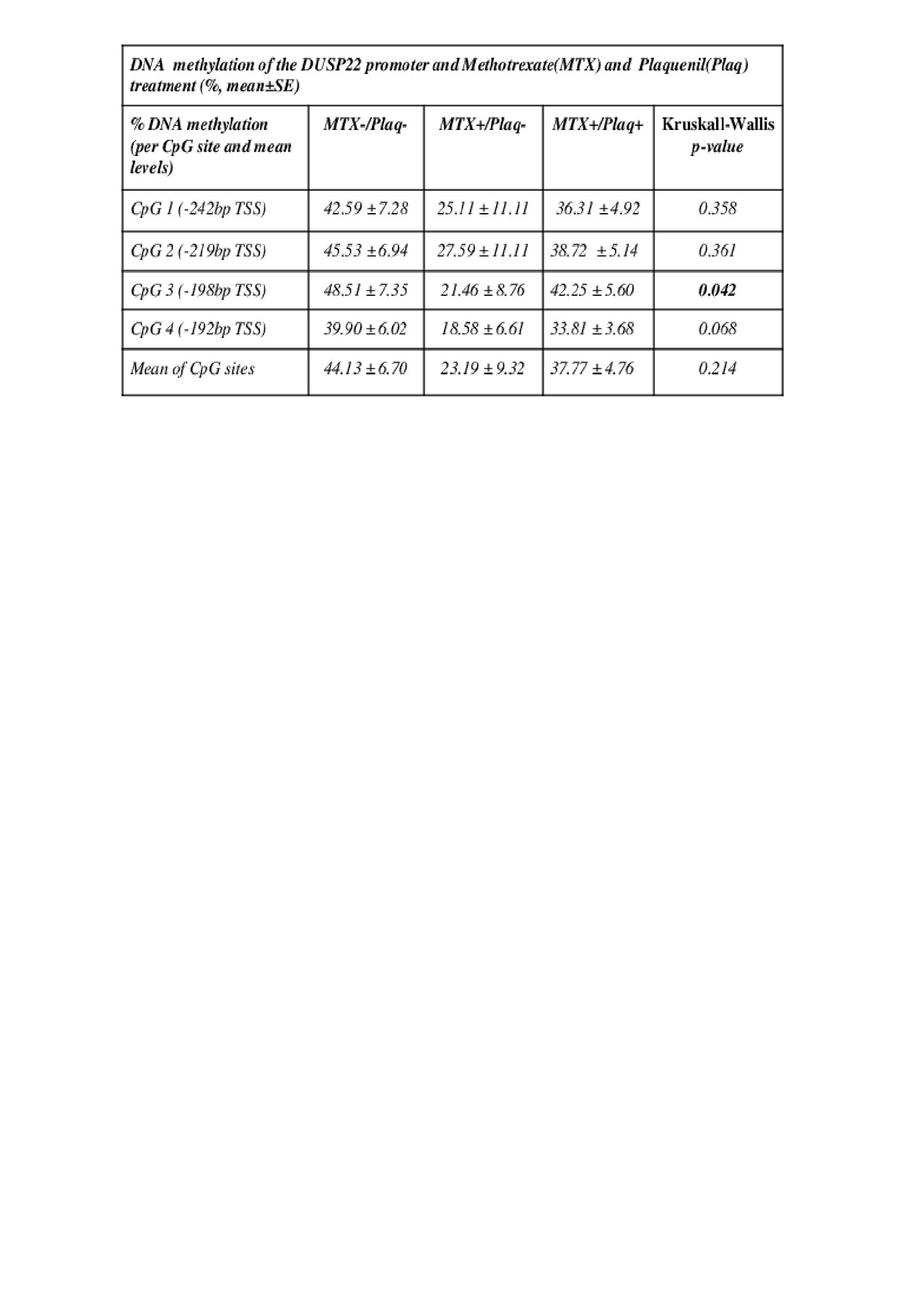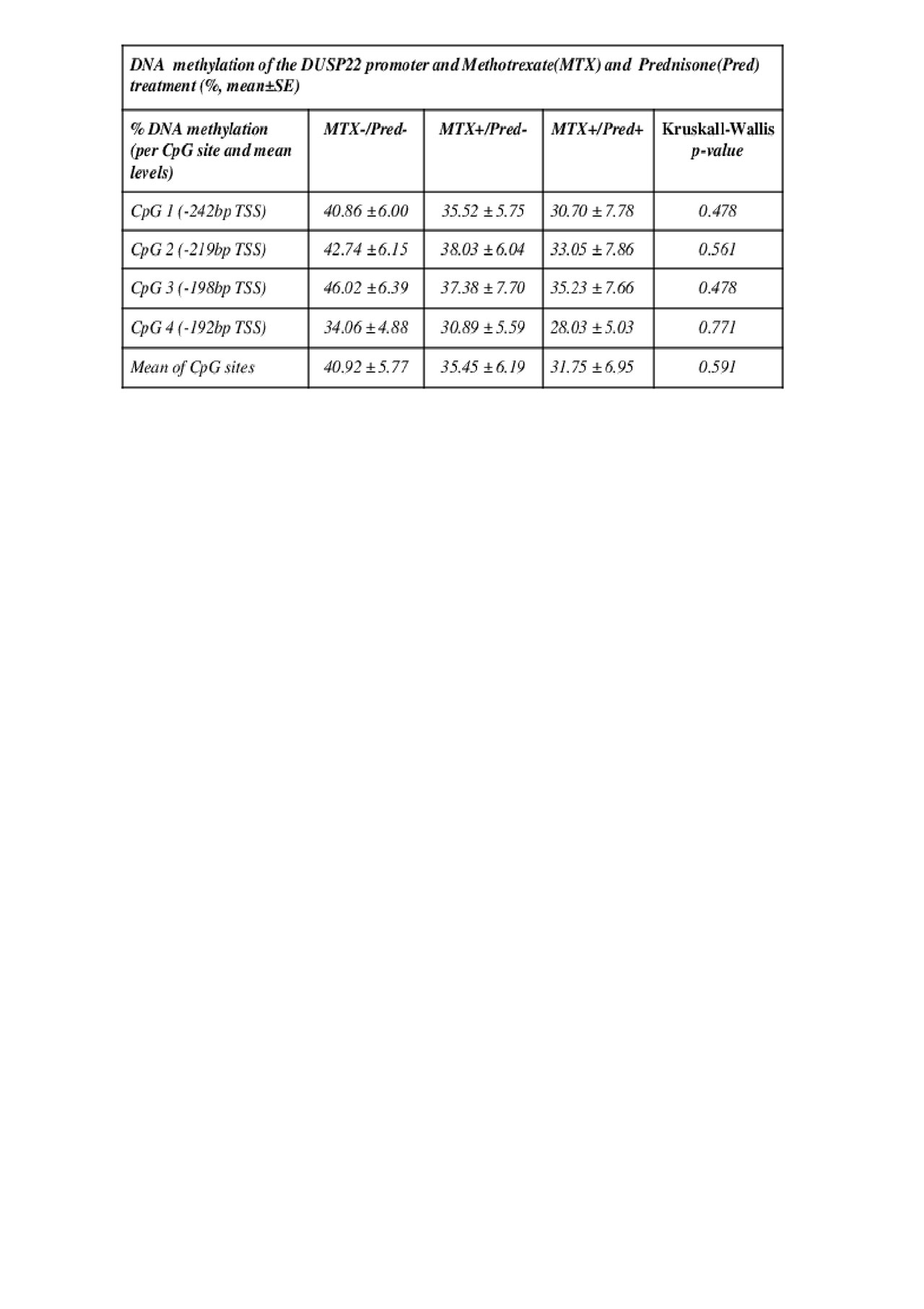Session Information
Session Type: Poster Session (Tuesday)
Session Time: 9:00AM-11:00AM
Background/Purpose: The Dual Specificity Phosphatase 22 (DUSP22) gene expression has been shown to be regulated via DNA methylation of its promoter. In addition, aberrant DNA methylation of DUSP22 in lymphocytes has been observed in RA patients and it has been linked to erosive disease. Global DNA hypomethylation of lymphocyte cell subpopulations from RA patients was reversed after methotrexate (MTX) treatment, suggesting MTX has the ability to alter DNA methylation. However, no study to date has evaluated the effect of RA treatment on DUSP22 DNA methylation. Here, we investigated whether plasma DNA methylation in the promoter region of DUSP22 varies by treatment regime in RA and further, we determined DUSP22 promoter DNA methylation changes after MTX exposure in lymphoblastoid cell lines.
Methods: We recruited 26 patients who satisfied the ACR criteria of RA. DNA was isolated from plasma, bisulfite converted, and pyrosequenced to determine DNA methylation levels in the promoter region of DUSP22 at four different CpG sites. In addition, lymphoblastoid cell lines of healthy individuals were treated with increasing concentrations (0nM and 50nM) of MTX and DNA methylation of DUSP22 was determined. Statistical non-parametric testing, Kruskall-Wallis for comparisons across groups and Mann-Whitney for differences between two groups, were conducted.
Results: Of the 26 RA patients included in this study, 20 were under MTX and/or Plaquenil regimens. DNA methylation of the CpG3 (-198bp from transcription start site(TSS)) of DUSP22 was significantly lower in patients treated with MTX(MTX+) but not with Plaquenil(Plaq-) when compared to those on neither MTX(MTX-) nor Plaquenil(Plaq-) (21.46 ± 8.76% vs. 48.51±7.35%, p=0.034). However, no significant differences were found between the MTX+Plaq- and MTX+Plaq+ groups for this site (21.46 ± 8.76% vs. 42.25±16.40%, p=0.088). No other differences in DUSP22 DNA methylation were observed for other CpG sites or the mean. In addition, subgroup analysis of MTX and Prednisone versus MTX- use did not yield any statistically significant differences. In in-vitro studies, exposure to 50nM MTX increased CpG4 (-192bp from TSS) DNA methylation (0.13±0.48% vs 0.59±0.45%, p=0.035) but not of CpG3 (2.25±1.34% vs. 3.09±1.21%, p-value=0.133). No other changes in DNA methylation were observed after MTX treatment in cell lines derived from healthy individuals.
Conclusion: Our findings suggest that RA treatment might have an effect on plasma DUSP22 DNA methylation. These findings also highlight the possibility that different drugs, when used in combination (i.e. Plaquenil and MTX), may interact and affect DNA methylation. In-vitro findings mirror previous data in drug naïve patients in which MTX increases DNA methylation, in contrast we found MTX treatment increases plasma DUSP22 DNA methylation. Our study has a small sample but it is the first one to investigate the effect of several RA drugs on DNA methylation of the DUSP22 promoter, suggesting mechanisms of action for widely used DMARDs like MTX and Plaquenil. Future studies with larger sample size are needed to confirm our findings, and add to our understanding of the epigenetic effects of RA drugs.
To cite this abstract in AMA style:
Delgado-Cruzata L, Rodriguez Alvarez M, Amarnani A, Guzman E, Bliese A, Albarracin B, Cirilli C, Hinson S. DNA Methylation of the Dual Specificity Phosphatase 22 (DUSP22) Gene Promoter in Plasma and Medication Use in Rheumatoid Arthritis (RA) [abstract]. Arthritis Rheumatol. 2019; 71 (suppl 10). https://acrabstracts.org/abstract/dna-methylation-of-the-dual-specificity-phosphatase-22-dusp22-gene-promoter-in-plasma-and-medication-use-in-rheumatoid-arthritis-ra/. Accessed .« Back to 2019 ACR/ARP Annual Meeting
ACR Meeting Abstracts - https://acrabstracts.org/abstract/dna-methylation-of-the-dual-specificity-phosphatase-22-dusp22-gene-promoter-in-plasma-and-medication-use-in-rheumatoid-arthritis-ra/



